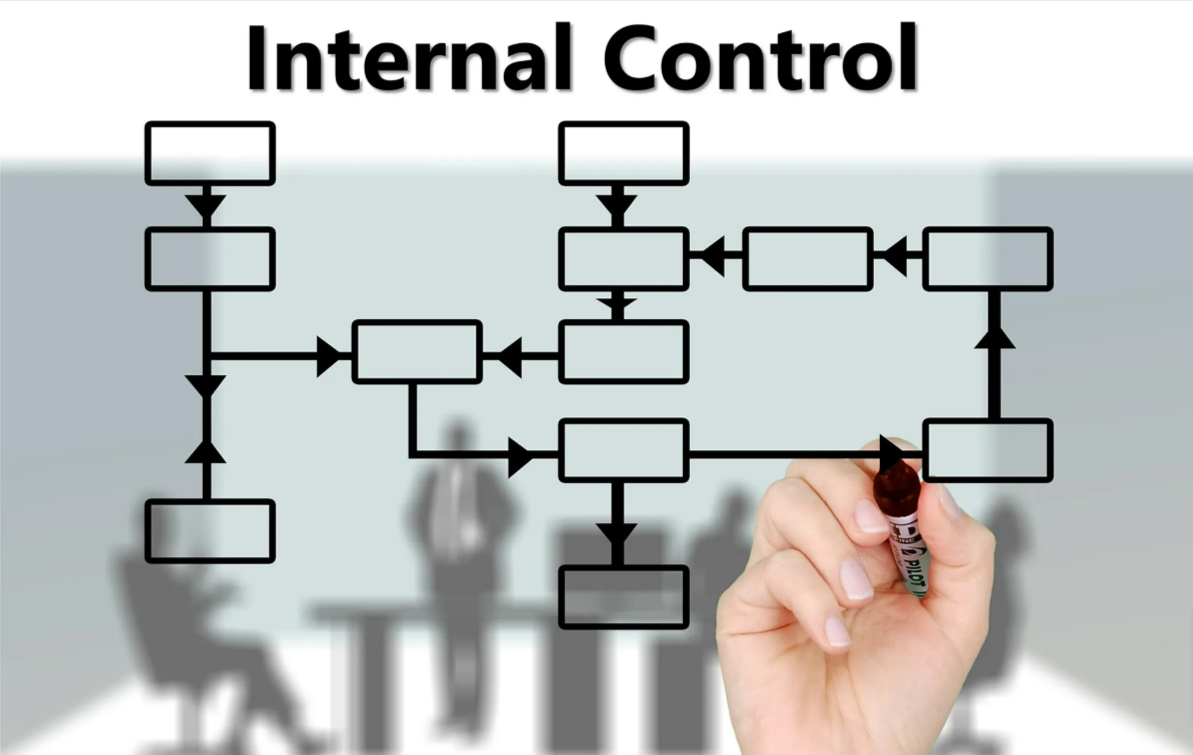

Insights and Ideas to Explore. Internal control processes are essential for the success of any organization. They help to ensure that the organization is operating efficiently and effectively, that its assets are protected, and that it is complying with all applicable laws and regulations.
In recent years, there have been a number of high-profile cases of organizations collapsing due to poor internal control processes. For example, in 2023, the cryptocurrency exchange FTX collapsed after it was revealed that it had engaged in fraudulent activities, including misappropriating customer funds.
Organizations need to have effective internal control processes in place to manage the risks that they face. These risks can include fraud, theft, errors, and natural disasters. Internal control processes can help to mitigate these risks by providing a framework for preventing, detecting, and correcting problems.
Internal control processes are also important for ensuring compliance with laws and regulations. Many laws and regulations require organizations to have certain internal controls in place. For example, the Sarbanes-Oxley Act of 2002 requires public companies to have internal controls over financial reporting.
Managing staff and processes in a constantly changing environment can be challenging. However, there are a number of things that organizations can do to make it easier:
Use technology to automate and streamline processes. This can free up staff to focus on more complex tasks and help to ensure that processes are followed even when there is high turnover.
Cross-train staff. This will help to ensure that there is always someone who is familiar with a particular process, even if the person who is normally responsible for it is unavailable.
Create a culture of continuous improvement. Encourage staff to identify and report on areas where processes can be improved. This will help to ensure that your internal control system is constantly evolving and adapting to the changing needs of the organization.
There are a number of things that organizations can do to ensure that rules and processes are followed by people:
Make sure that rules and processes are clear and easy to understand. All employees should have access to documented procedures, and training should be provided on how to follow them.
Hold employees accountable for following rules and procedures. This means having a system in place for disciplining employees who violate the rules. It also means rewarding employees who consistently follow the rules.
Lead by example. Managers need to be role models and follow the rules themselves. If employees see that their managers are not following the rules, they are less likely to do so themselves.
Effective internal control processes can help to eliminate internal conflicts, reduce costs, and increase efficiencies.
For example, if an organization has a strong internal control system in place, it is less likely that employees will be able to engage in fraudulent activities. This can help to reduce the cost of fraud and prevent internal conflicts.
Additionally, well-designed internal control processes can help tr>o streamline operations and reduce waste. This can lead to increased efficiencies and lower costs.
Most managers face the problem of internal controls, where often the lines are blurred in defining the roles of people resulting in shifting of responsibilities when things don’t go well. Managers must aim at governing through systems and processes rather than people.
Organization structure help employees understand the assigned roles and responsibilities of the people, know reporting hierarchies and decision-making managers. Each process needs to be clearly illustrated and responsibilities assigned. Top bottom approach signals authority, while this approach combined with bottom-up approach encourages feedback and makes it easier for organizations to tune up the process, tackle external and internal issues.
Process definition should align with the policies of the company and should be rule based to ensure employees clearly understand the process and any deviation could be escalated. At the same time, organizations should be able to adapt to changing marketing conditions and constantly monitor if the existing processes are achieving their objectives.
People understand that a good manager will not hesitate to delegate. In fact, delegation helps the manager to focus on other tasks where his attention is required more. Delegation delivers the message down the line the extent to which manager has confidence on his subordinates. Delegation along with trust mitigates risk of loss of communication both ways.
Manager should ensure that the processes are in compliance with the local laws while ensuring the risk component is addressed which will have implications on internal reporting, customer servicing and governmental reporting.
With the systems and processes in place, how will the manager ensure the processes are followed? Managers face issues related to employees not adhering to the procedures and process and just take a short cut. On the other hand, most conscientious employees go out of their way to solve issues within the organization without getting noticed. When it comes between people and systems, managers have to ensure systems are followed. Deviations by employees, even by a star employee can lead degrading the systems and processes.
Breaking up the processes and assigning functions to employees based on their role ensures effective communication. Integrating the systems through IT helps in inter-department communications. Technology plays an over-arching role in linking the systems, process and employees.
For any large or medium organizations, unclear systems and processes are major impediment for growth. Managers have to have the systems and processes audited regularly to watch deviations. Clear cut audit programs and procedures when implemented efficiently ensure processes and systems are followed.
Managers have to be a catalyst for change. The organization needs to have the flexibility to change to adapt itself to business conditions, technology improvements and train their people on additional skills. Resistant to change has to be managed through communication and it is the manager’s responsibility to inculcate the need to change and adapt.
Managers are as good as the employees. An effective manager has to evaluate, understand the strengths of his team, define each individual’s role and responsibility, identify KPIs, set targets and facilitate to perform as a team.
The following are some examples of internal laws and regulations that relate to internal control:
SOX is a federal law in the United States that requires public companies to maintain effective internal controls over financial reporting. SOX also requires public companies to have their internal controls audited by an independent auditor on an annual basis.
The Corporate Governance Act is a law in the United Kingdom that requires all listed companies to have a risk management system in place and to report on the effectiveness of their internal controls.
ASIC is the corporate regulator in Australia. ASIC has published a set of Corporate Governance Principles and Recommendations that provide guidance to listed companies on how to establish and maintain effective internal controls.
Additionally, many other laws and regulations require organizations to have internal controls in place to protect customer privacy and data security. For example, the General Data Protection Regulation (GDPR) requires organizations that process the personal data of EU residents to have certain internal controls in place.
Internal control processes are essential for the success of any organization. They help to ensure that the organization is operating efficiently and effectively, that its assets are protected, and that it is complying with all applicable laws and regulations.
Organizations need to have effective internal control processes in place to manage the risks that they face, including fraud, theft, errors, and natural disasters. Internal control processes can also help to ensure compliance with laws and regulations, such as the Sarbanes-Oxley Act of 2002 and the General Data Protection Regulation (GDPR).
There are a number of things that organizations can do to manage staff and processes in a constantly changing environment, ensure that rules and procedures are followed by people, and eliminate internal conflicts, reduce costs, and increase efficiencies.
Polaris Consulting specializes in the field of Accounting, Bookkeeping, Auditing, and providing Online Bookkeeping Services For Small Business
Polaris Consulting works with a chosen selection of software solutions for Accounting, Finance, Inventory, Manufacturing / Production, and Property Management, which provide complete ease of management by streamlining their processes.